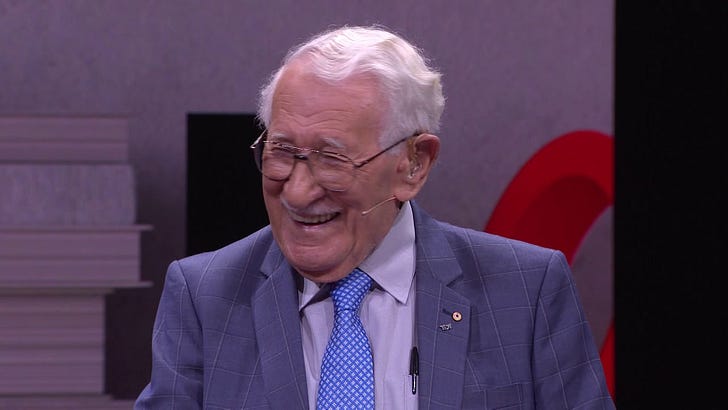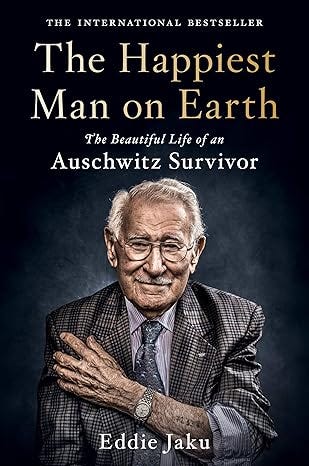I recently stumbled on a book with the curious title The Happiest Man on Earth: The Beautiful Life of an Auschwitz Survivor, by Eddie Jaku. A word of warning. Most of the book is anything but happy. The matter-of-fact writing style is disarming, until you are pulled in by the madness of Kristallnacht, and the upheaval of innocent lives never restored to their proper place.
The details are alarmingly clear. Other Holocaust survivors can still relate vivid memories, even in old age, and Eddie is no exception. His recollection is remarkable. In the years leading up to his death at age 101, Eddie demonstrated a brilliantly sharp mind in interview after interview. He had the strength to stand and give a TEDx talk at age 99. His one and only book was published not long afterward.
In his TEDx talk, Eddie said: “If you’re healthy and happy, you’re a millionaire. Happiness also brings good health to the body and mind, and I attribute my 99 years of health mostly to the positive and happy attitude. One flower is my garden. One good friend is my world.”
Eddie learned to give up on hate: “Hate is a disease which may destroy your enemy, but will also destroy you in the process.”
Quotes from Eddie’s book:
“If you lose your morals, you lose yourself.”
“Under the Nazi regime, a German man was not immediately an evil man, he was weak and easily manipulated. And slowly but surely, these weak men lost all of their morals and then their humanity. They became men who could torture others and then still go home and face their wives and children.”
“I never lost sight of what it was to be civilised. I knew that there would be no point surviving if I had to become an evil man to do it.”
“With a simple act of kindness, you can save another person from despair, and that might just save their life.”




